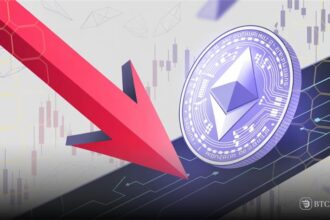Ethereum co-founder Vitalik Buterin reaffirmed his focus on layer-2 decentralization, clarifying that he will only recognize scaling solutions that meet “stage 1” on his decentralization scale. In a post on X (formerly Twitter) on Sept. 12, Buterin emphasized how seriously he takes this, adding that starting next year, he’ll only publicly mention layer-2 networks that qualify as “stage 1+” decentralized.
Buterin mentioned that several zero-knowledge rollup teams have shared that they aim to reach stage 1 by the end of the year, and he’s eager to see it unfold. Moreover, he added that the days of rollups relying mainly on multi-sigs are nearly over, signalling the arrival of cryptographic trust.
In 2022, Buterin introduced the idea of “training wheels” for Ethereum’s scaling rollup projects, which were at different stages of development. He laid out a three-step path toward layer-2 decentralization. The first stage, called ‘stage 0’ or ‘full training wheels,’ refers to a project that operates as a rollup. All transactions happen on-chain at this stage, and users can transact and withdraw funds without operator help.
Stage 2 rollup security
However, there’s just a basic multi-signature wallet in charge, without any need for fraud or validity checks. Stage 1, now the minimum standard recognized by Buterin, marks the next phase of decentralization. At this stage, layer-2 systems implement active fraud or validity-proof mechanisms to ensure security.
There should be a multi-signature system, or a “security council,” with strict rules requiring at least 6 out of 8 signatures for decisions and a separate group to act as a safeguard, independent from the main organization. Any upgrades should also have a seven-day waiting period. The last step toward full layer-2 decentralization is what they call “stage 2” or “no training wheels.”
At this point, no team can alter the code’s results if it’s working as expected for projects. Security councils can only step in for obvious bug fixes, and even then, changes won’t take effect for 30 days. In June, several layer-2 rollup teams, like Linea, ZKsync, Arbitrum, and Optimism, announced that full decentralization under “stage 2” could be a few years away.







